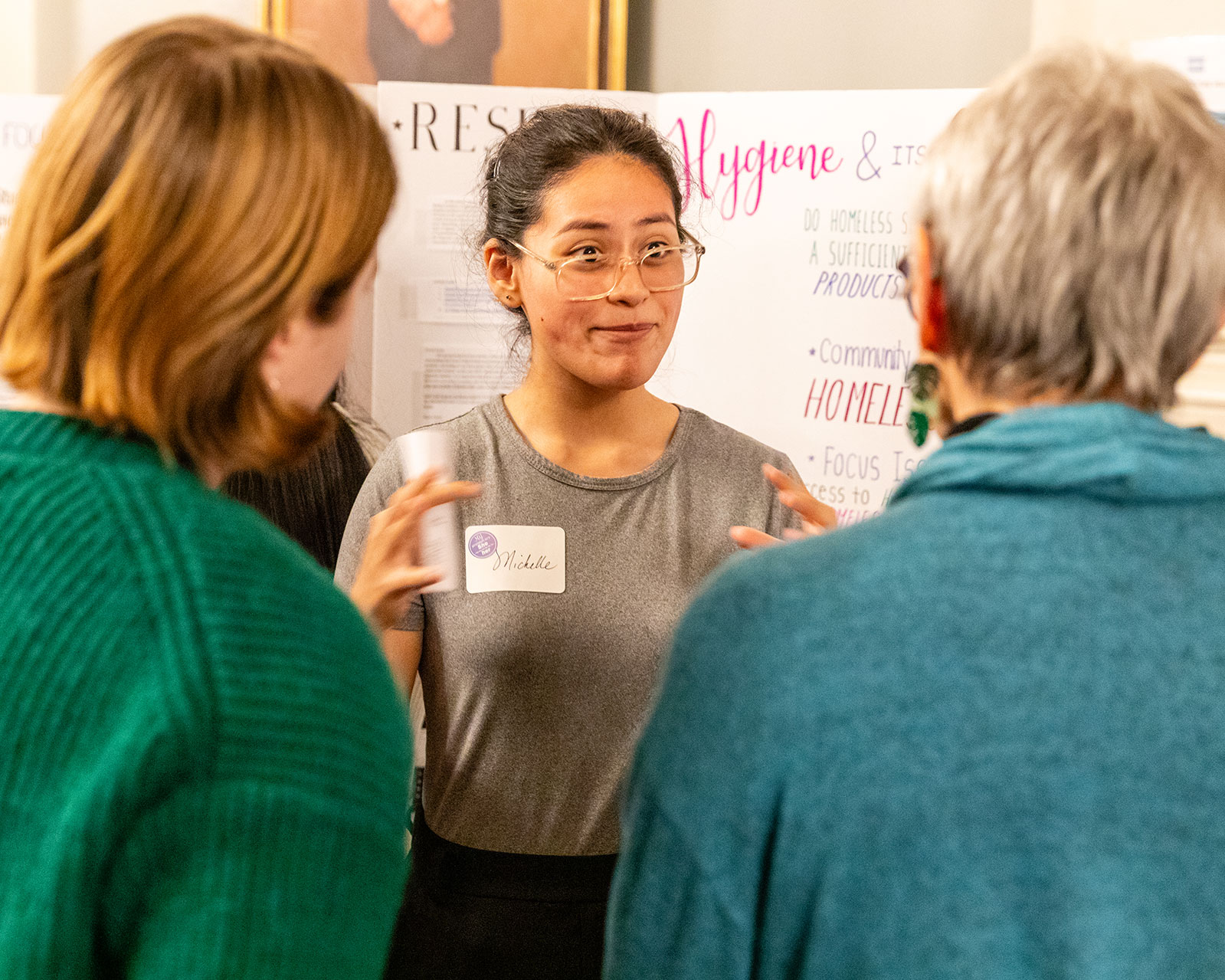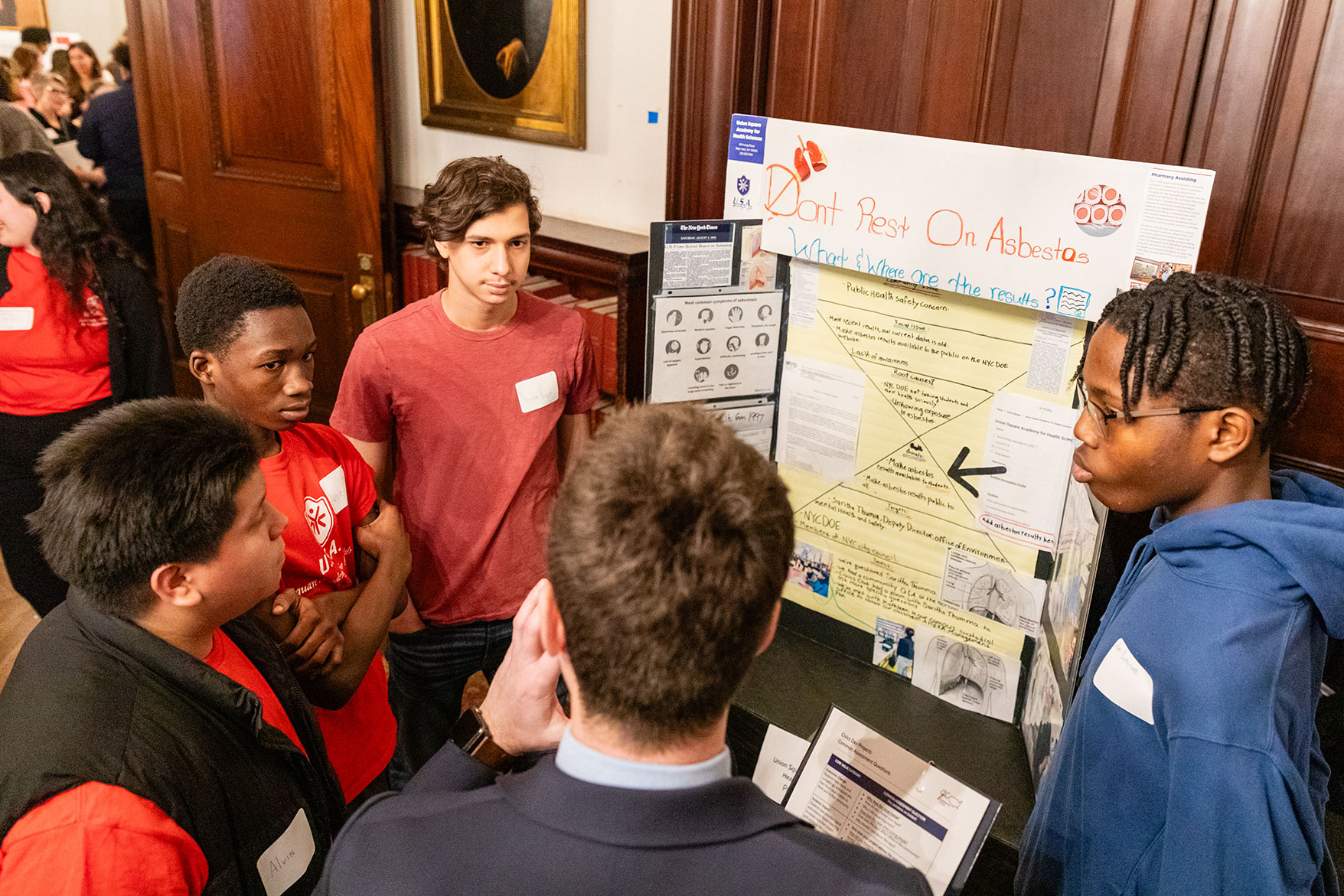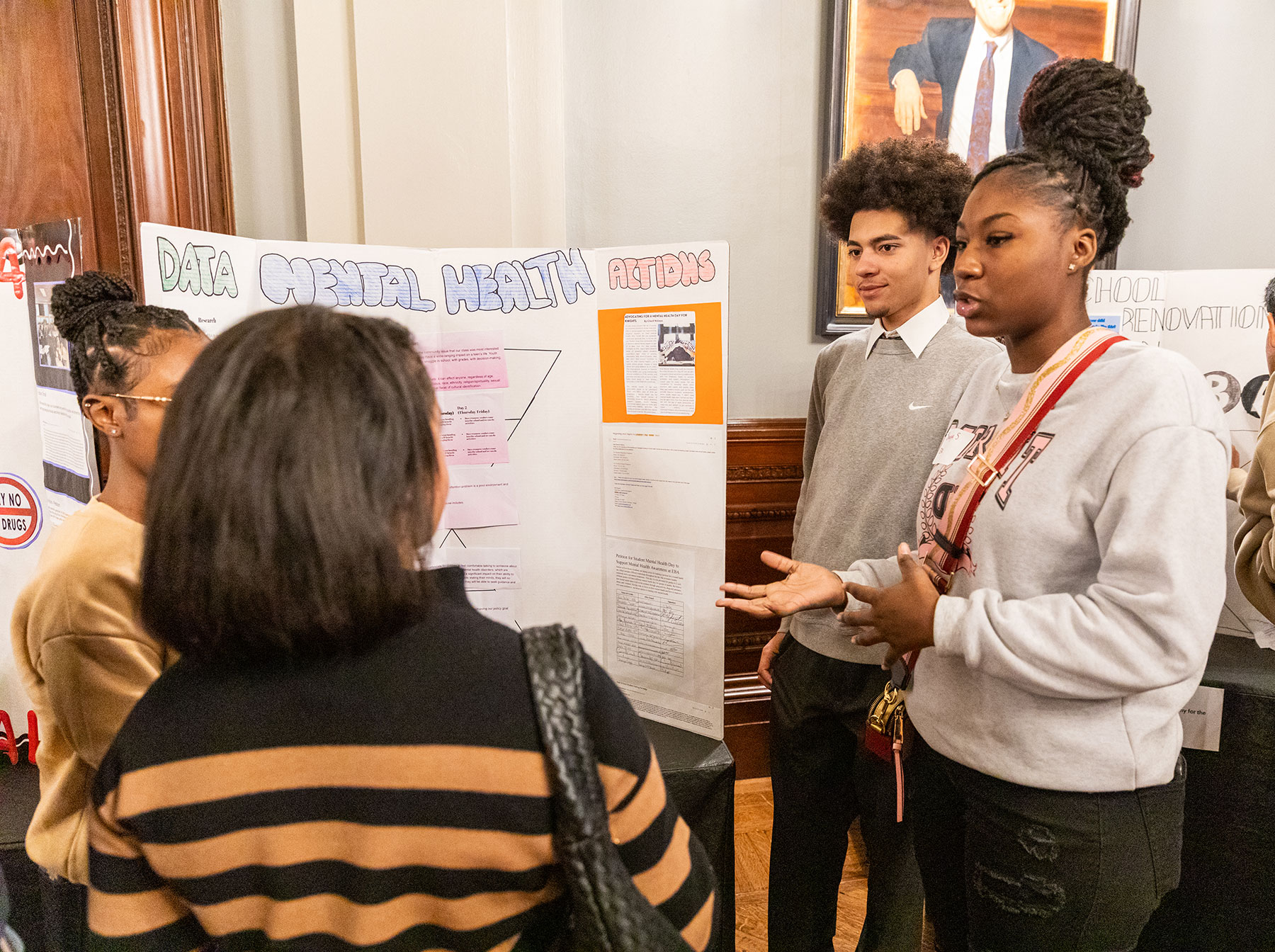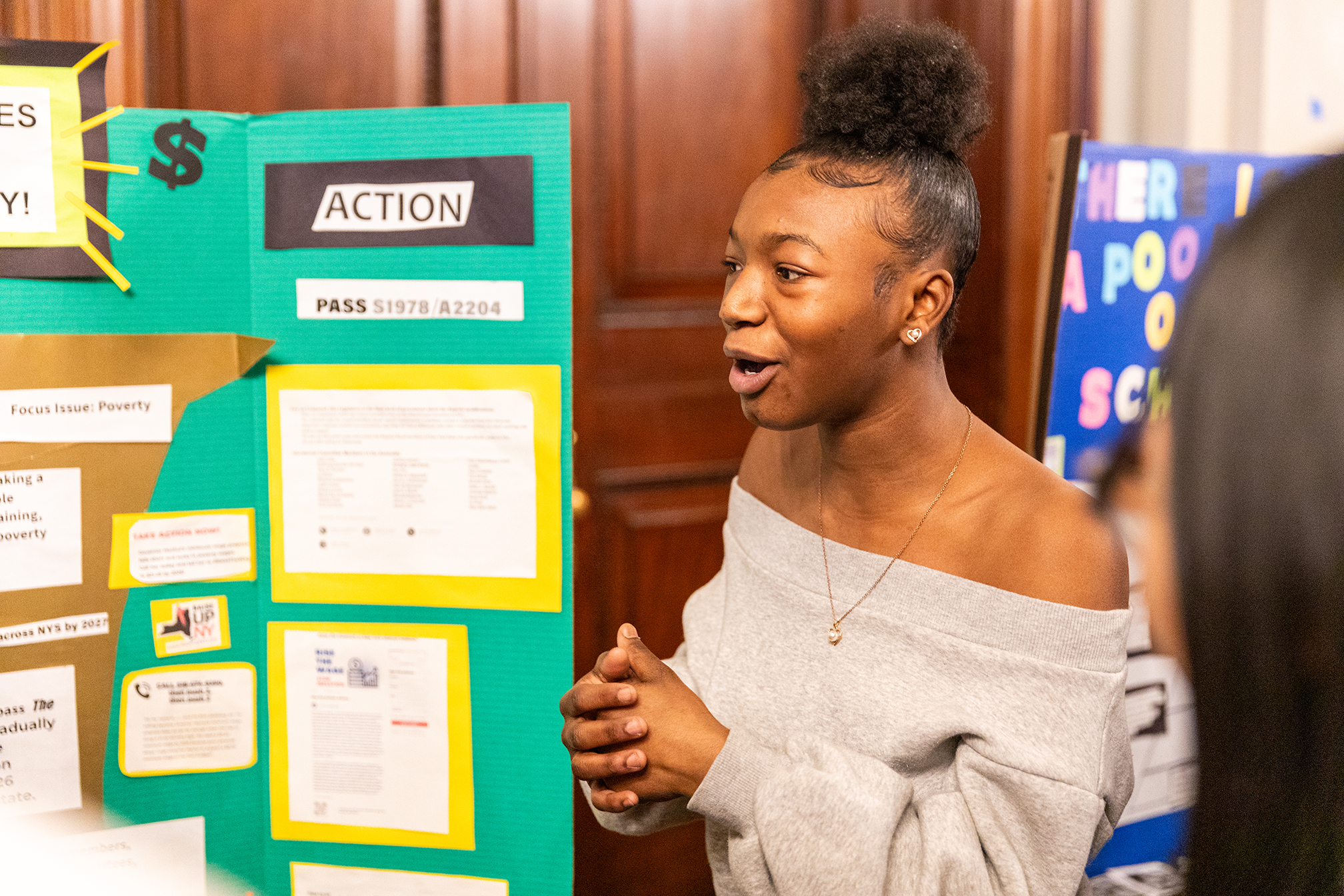
Students tackle the issues that matter to them as a crash course in citizenship
“We have many people at our high school that walk to and from school every day. Kids at our school walk in the street, squeezing by cars and buses to make it to or out of school, and it is extremely dangerous for everyone,” said Andrew, a senior at Patchogue-Medford High School on Long Island in New York.
Andrew’s class was following a curriculum from nonprofit Generation Citizen that encourages young people to identify an issue that matters to them in their daily lives, then helps give them a framework for advocating for change. For Andrew and his peers, this was a pedestrian issue that was anything but: getting sidewalks added along two busy roads near their school that students currently traverse on foot.
“Generation Citizen is about getting students involved in the governmental process and making a systematic change. Whether that be at your school, local town, state, or even on the federal level is up to your class’s discretion,” explained Andrew. “We chose a project that affects us every day as we go to and from school.”
The Stavros Niarchos Foundation (SNF) has supported Generation Citizen since 2016, most recently the organization’s Community-Based Action Civics Education Program, which trains middle and high school teachers to deliver an interactive, project-based 12-week civics curriculum.
The topics they choose for those projects, like the lack of sidewalks near Andrew’s school, have immediate bearing on their health, wellbeing, and sense of belonging: lead in the drinking water at their school, the availability of feminine hygiene products at homeless shelters, resources for newly arrived immigrant students, living wages, the cost of healthcare, preserving local monuments in their communities, or having halal food available at school.
“We are currently collecting signatures to petition New York City Public Schools to add food-specific language into the New York City Student Bill of Rights,” said a 9th-grade participant from Manhattan, who said that she sometimes has trouble focusing in her afternoon classes when there hasn’t been food she can eat at lunch. “The reason I choose to continue to fight to get fresh and nutritious culturally affirming food for the students in New York City schools is because I passionately believe that we can make this happen.”
Generation Citizen approaches participants not as future voters or officeholders, but as people who can act as empowered citizens right now.
“At Generation Citizen, we don’t believe that one generation runs the race, holds the power, makes the decisions, and then hands the baton to the next one,” says CEO Elizabeth Clay Roy. “We recognize that we all need to be engaged in moving our society forward, moving our communities forward, if we want to have an inclusive and engaged democracy.”
“Democracy,” she says, “is about engaging the wisdom of community.”
New York City Public Advocate Jumaane Williams, speaking recently at Generation Citizen’s Civics Day event, where dozens of student groups presented their projects, agreed. “Young people like yourselves are not just the future, but the present.”
“It’s possible that there’s never been a more important time for young people to be civically engaged, to be dedicated to improving the world,” he said. “By the way, it doesn’t have to be ‘the world.’ It could also be just your world—your block, your school, your community, your family.”
For Andrew and his peers, it seems likely their block will soon change. Construction on the new sidewalks near their school is expected to be completed within two years.



